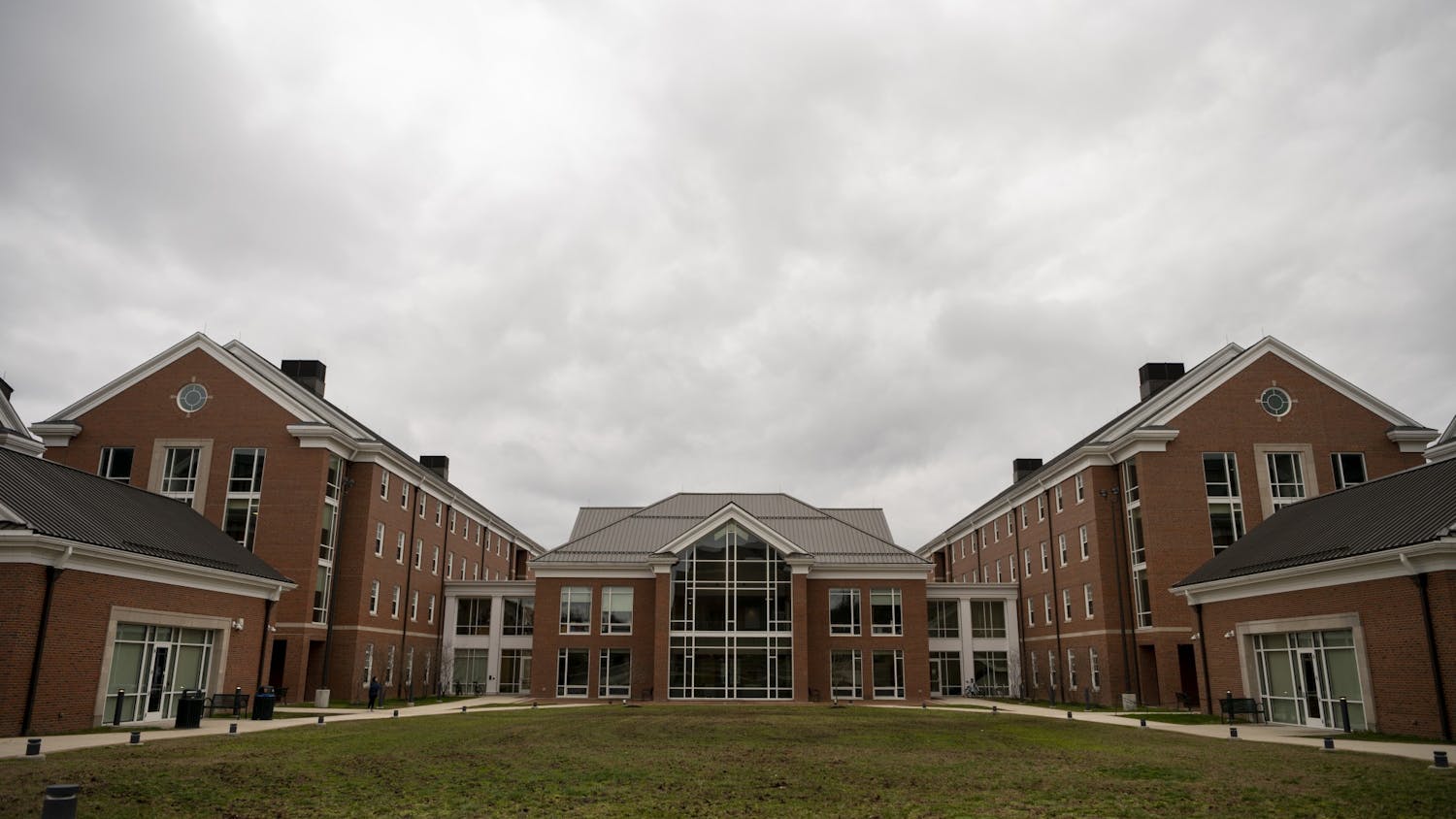Mary Harron’s satirical horror film “American Psycho” (2000) follows New York City businessman Patrick Bateman (Christian Bale) as he leads a double life as a serial killer. Set in the 1980s, the movie combines dark comedy and horror to mock Wall Street playboy culture and rapid consumerism from the era.
Although many speculate the true metaphors of the film, like whether or not any of Bateman’s murders were real, it’s still a pop culture staple. One of the many reasons for its status as a well-known horror film is due to its memorable scenes backed by its equally memorable soundtrack.
Filled with pop, rock and new wave hits from the ‘80s, it sets the audience right in the era as they watch Bateman commit atrocities on screen. It also gives the viewers an insight into his psyche as many of the tracks played represent his music taste and love for certain musicians.
Viewers often see Bateman in a club, restaurant or party wherein the music is set for a specific vibe. In the first club scene, New Order’s “True Faith” plays as performers and clubgoers dance in the dingy bar, yet the focus is on Bateman and his business friends having drinks and doing drugs. The scene gives viewers a glimpse of Bateman’s alternate personality.
Another bar scene later in the film has another bass-heavy club hit, “Pump up the Volume” by M|A|R|R|S blaring in the background. Both set the scenes perfectly by reflecting the ‘80s, dance club vibe.
Although slightly underground to the regular viewer, other tracks jump out at the audience as easily recognizable. Katrina & The Waves’ massive pop hit “Walking on Sunshine” accompanies Bateman as he walks through the hallways of his office. In juxtaposition with his scowl, the upbeat tune blares through his Sony Walkman and changes the entire vibe from the previous scenes.
Another playful addition to the film’s satire is in the next scene, where Bateman and his fiancée, Evelyn Williams (Reese Witherspoon), are in a limo on their way to a restaurant. Bateman’s Walkman plays “Simply Irresistible” by Robert Palmer, which Bateman gives a direct reference to as he’s annoyed by Evelyn talking over the tape. These two sequences can be seen as representatives of Patrick’s two sides in battle with one another.
The most memorable scene from the film is arguably Paul Allen’s death scene where Huey Lewis & The News’ catchy rock tune, “Hip To Be Square,” plays in the background. It’s “a song so catchy, most people probably don’t listen to the lyrics. But they should.” Not only does it create an unforgettable audio and visual contract with the bloody events played on screen, but it reflects the type of society Bateman and his friends dominate in.
It draws back to the scene with Bateman and Evelyn in the car. When Evelyn asks why he doesn’t quit his job at Pierce & Pierce since he supposedly hates it so much, Bateman says firmly, “I want to fit in.” His increased tension with Allen throughout the movie — from the business cards to his superiority over the much exalted Fisher’s account — is a threat to Bateman’s need to dominate and, therefore, “fit in” with his distinguished peers. The “Hip To Be Square” scene is the final blow to Bateman’s pride as it drives him to murder Allen.
One of the most alluring aspects of the film is Bateman’s speeches about the songs he plays during the scenes with his future victims. The “Hip To Be Square” spiel is his raving about Phil Collins and his work in legendary pop supergroup Genesis. During his threesome scene with sex workers Christie and Sabrina, Genesis’ slow ballad “In Too Deep” fades into Collins’ up-tempo track “Sussudio.” He describes these tracks as the “greatest hits of the 1980s” and dives deeper into Collins’ musical work.
Another interesting Bateman music history lecture takes place in Allen’s apartment with Christie and a fellow friend of Bateman, Elizabeth (played by the movie’s screenwriter, Guinevere Turner). However, it may not be for the reason the film leads the viewer to believe.
During this scene, Bateman rants about his appreciation for Whitney Houston and is laughed at for it overlaid in an orchestral cover of “The Greatest Love Of All,” since the film did not land the rights for the master use.
This film, among many films in its genre, had a hard time landing the rights for its soundtrack. Luckily, they were granted rights to the appropriate songs needed for the film, especially in consideration of the film’s source material, Bret Easton Ellis’ 1991 novel of the same name. The book goes even further with Bateman’s music obsession.
Lastly, David Bowie’s “Something in the Air” drops after the film’s shocking final close-up and the credits roll. While not an ‘80s tune like the majority of the soundtrack, it's an interesting song placement as it seems to connect the audience to the current time (i.e. 1999-2000) through one of the ‘80s most eccentric pop stars. Other credit songs include “Watching Me Fall” by The Cure and “Trouble” by Danial Ash.
“American Psycho” and its protagonist are driven by pop, dance and rock music from the ‘80s. It sucks the viewer into Bateman’s warped reality and allows them to safely observe the horrors on screen. Whether you’re a fan of this movie or not, it’s a staple in its genre, both musically and movie-wise.






